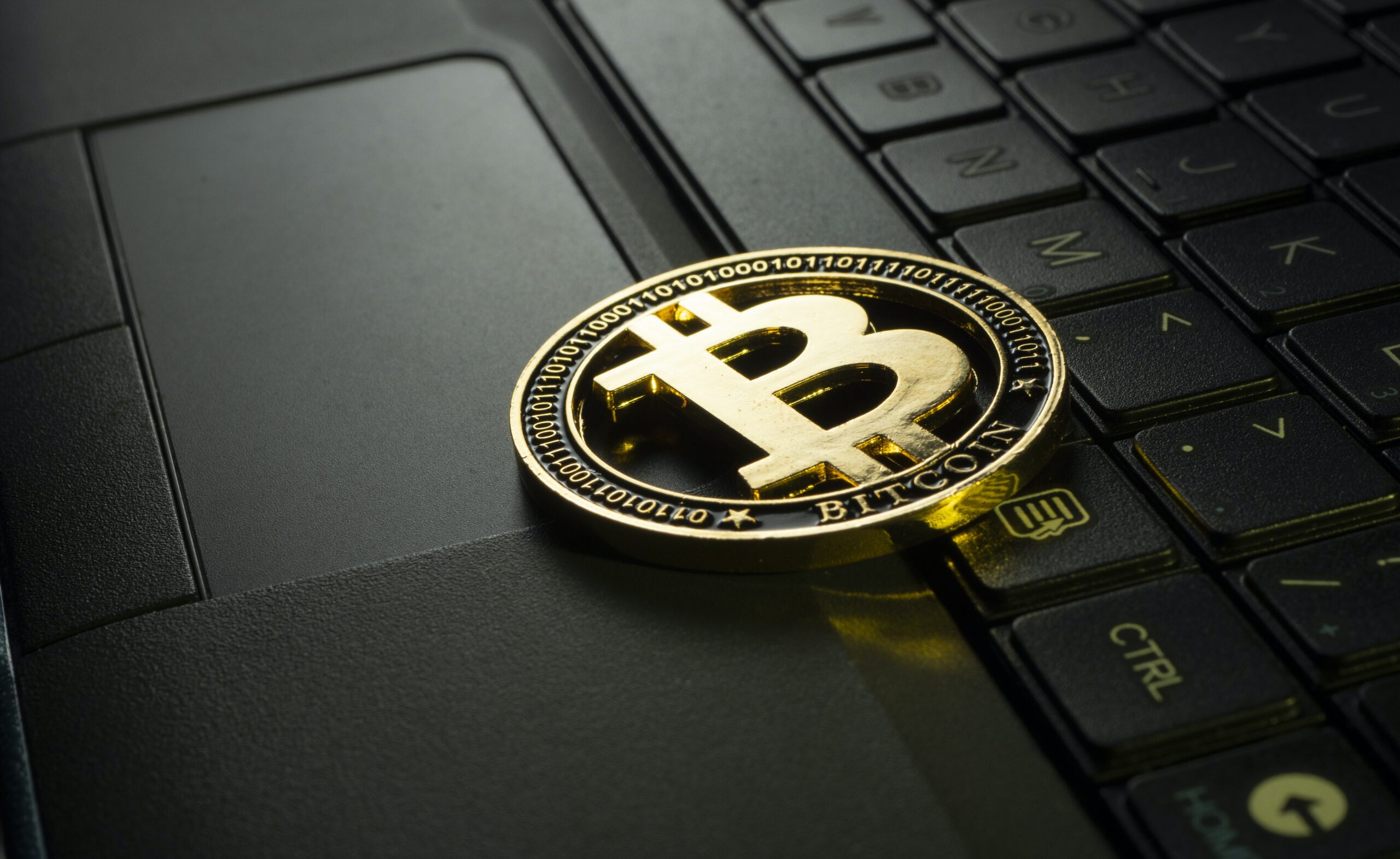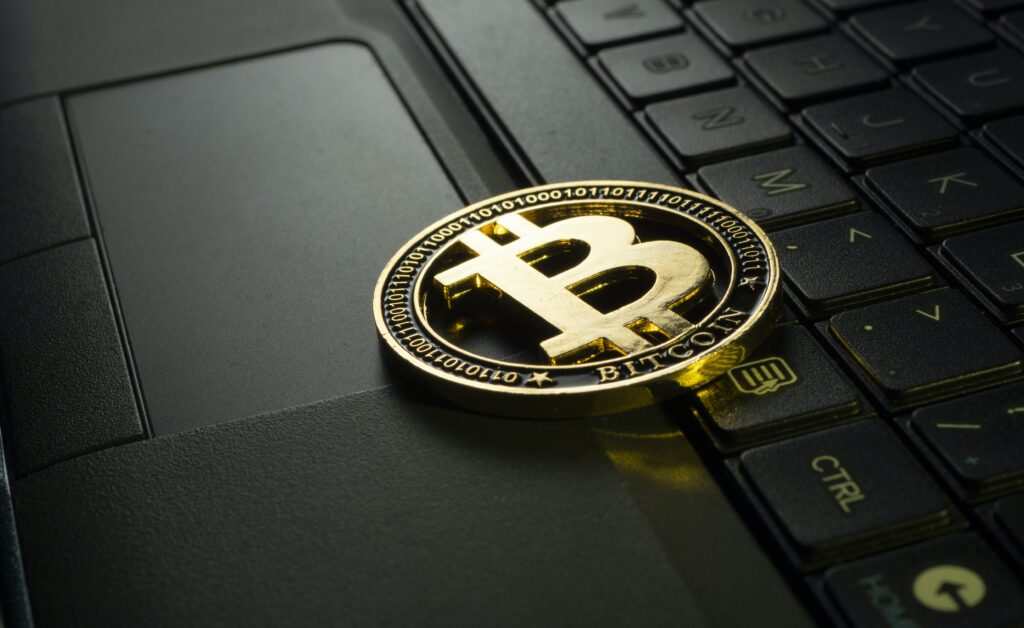
This article explores the innovative concept of the “Self Directed IRA Bitcoin” – a groundbreaking product that allows individuals to invest their Individual Retirement Account (IRA) funds in the digital currency, Bitcoin. By combining the benefits of a self-directed IRA and the potential returns of Bitcoin investments, this product offers an exciting opportunity for investors to diversify their retirement portfolios and tap into the growing market of cryptocurrency. We will discuss the key features and advantages of the “Self Directed IRA Bitcoin” and shed light on the potential risks that investors should be aware of.
What is a Self Directed IRA?
Definition of a Self Directed IRA
A Self Directed Individual Retirement Account (IRA) is a type of retirement account that provides investors with the freedom to choose their own investments. Unlike traditional IRAs, where investments are limited to stocks, bonds, and mutual funds, a self-directed IRA allows you to invest in a wide range of alternative assets, including real estate, private equity, precious metals, and even Bitcoin and other cryptocurrencies. With a self-directed IRA, you have greater control over your retirement savings and the ability to diversify your investments beyond traditional options.
Benefits of a Self Directed IRA
There are several key benefits associated with a self-directed IRA. Firstly, it provides investors with the opportunity to diversify their retirement portfolio beyond the usual stocks and bonds. This diversification can potentially help to lower risk and increase potential returns. Additionally, self-directed IRAs offer tax advantages, just like traditional retirement accounts. Contributions to a self-directed IRA may be tax-deductible, and any investment gains made within the account are tax-deferred until distributions are taken during retirement. Furthermore, a self-directed IRA allows you to have more control over your investment decisions, enabling you to invest in assets that you are knowledgeable about and believe will perform well.
Investment Options
Unlike traditional IRAs, which are limited to a narrow range of investment options, self-directed IRAs offer a wide array of investment opportunities. This includes investments in real estate, private companies, precious metals, tax liens, and even digital currencies such as Bitcoin. The flexibility to invest in alternative assets allows investors to potentially leverage their expertise and capitalize on emerging trends and opportunities. However, it is important to note that investing in alternative assets carries additional risks, including illiquidity and a lack of regulatory oversight.
Regulations and Restrictions
While self-directed IRAs provide investors with a greater range of investment options, there are still certain regulations and restrictions in place to ensure compliance with the tax code. For example, certain types of investments, such as life insurance and collectibles, are prohibited within a self-directed IRA. Additionally, there are rules regarding disqualified persons, which restrict certain transactions between the IRA and individuals closely related to the account holder, such as their spouse, parents, or children. It is important to familiarize yourself with these regulations and restrictions before making any investment decisions within a self-directed IRA.
Bitcoin and Cryptocurrency
Introduction to Bitcoin
Bitcoin, the first and most well-known cryptocurrency, was created in 2009 by an anonymous person or group of people using the pseudonym Satoshi Nakamoto. It operates on a decentralized network called blockchain, which allows for secure and transparent transactions without the need for intermediaries like banks. Bitcoin is known for its limited supply and its potential to serve as a store of value, similar to gold.
Cryptocurrency Investments
Cryptocurrencies have gained significant popularity in recent years as a new asset class with the potential for high returns. In addition to Bitcoin, there are thousands of other cryptocurrencies available for investment, each with its own unique features and use cases. Investing in cryptocurrencies can provide diversification and potentially significant profits, but it is important to recognize the risks and volatility associated with this asset class.
Risks and Volatility
Bitcoin and other cryptocurrencies are known for their volatility. The prices can fluctuate dramatically within a short period, which can result in substantial gains or losses. Additionally, the cryptocurrency market is relatively young and lacks the regulatory oversight seen in traditional financial markets. This lack of regulation can lead to increased risks, including market manipulation and fraud. It is important for investors to carefully consider the risks and volatility associated with cryptocurrencies before making any investment decisions.
Bitcoin IRA Companies
Given the growing interest in cryptocurrencies, several companies have emerged that specialize in facilitating investments in Bitcoin and other cryptocurrencies through self-directed IRAs. These companies act as custodians and provide the necessary infrastructure to securely hold and manage digital assets within an IRA. They typically offer features such as seamless integration with popular cryptocurrency exchanges, secure storage solutions, and tax reporting services. When choosing a Bitcoin IRA company, it is important to consider factors such as security, reputation, fees, and customer support.

Self Directed IRA vs. Bitcoin IRA
Overview of Self Directed IRA
A self-directed IRA, as mentioned earlier, provides investors with the flexibility to choose from a wider range of investment options compared to traditional IRAs. It allows for investments in alternative assets, including real estate, private equity, and even cryptocurrencies like Bitcoin. With a self-directed IRA, you have the freedom to diversify your retirement portfolio and potentially capitalize on market trends and emerging opportunities.
Overview of Bitcoin IRA
A Bitcoin IRA, on the other hand, is a specific type of self-directed IRA that focuses solely on investing in cryptocurrencies, particularly Bitcoin. It allows investors to hold and grow their Bitcoin investments within a tax-advantaged retirement account. Bitcoin IRAs are specifically designed for individuals who believe in the long-term potential of cryptocurrencies and want to add them to their retirement portfolio.
Benefits and Risks of Bitcoin IRA
One of the main benefits of a Bitcoin IRA is the potential for significant returns. Bitcoin has experienced tremendous growth since its inception, and some investors believe it has the potential to become a widely accepted store of value. By investing in Bitcoin through a self-directed IRA, you can potentially harness this growth within a tax-advantaged account. However, it is important to recognize that investing in Bitcoin also carries significant risks and volatility. The price of Bitcoin can fluctuate greatly, and there are inherent uncertainties in the cryptocurrency market.
Choosing Between Self Directed IRA and Bitcoin IRA
When deciding between a self-directed IRA and a Bitcoin IRA, it ultimately comes down to your investment goals and risk tolerance. A self-directed IRA offers a broader range of investment options beyond cryptocurrencies, allowing for greater diversification. This may be appealing if you have a more balanced approach to investing and want exposure to various asset classes. On the other hand, a Bitcoin IRA is more suitable for individuals who have a strong belief in the future of cryptocurrencies and want to focus solely on this asset class. Carefully consider your investment strategy and consult with a financial advisor to determine which option aligns best with your retirement goals.
Setting Up a Self Directed IRA
Choosing a Custodian
When setting up a self-directed IRA, it is crucial to choose a reputable custodian or administrator to manage your account. The custodian is responsible for ensuring compliance with IRS regulations and handling administrative tasks related to your self-directed IRA. It is important to select a custodian that has experience in handling alternative investments and provides reliable customer service. Conduct thorough research and read reviews to find a custodian that meets your specific needs and offers the investment options you desire.
Opening a Self Directed IRA
The process of opening a self-directed IRA is similar to opening a traditional IRA. You will need to complete an application with the chosen custodian and provide the necessary identification and investment funds. The custodian will guide you through the process and may require additional documentation or information depending on the nature of the investments you plan to make. Ensure that you understand the custodian’s fees and any restrictions or limitations imposed on certain investment types.
Transferring Funds
To fund your self-directed IRA, you can make contributions directly to the account, transfer funds from another IRA or employer-sponsored retirement plan, or roll over funds from a previous retirement account. The method of funding will depend on your individual circumstances and the custodian’s policies. It is essential to follow the IRS guidelines for contributions and transfers to ensure tax compliance and prevent any penalties or restrictions.
IRA Contribution Limits
Self-directed IRAs, like traditional IRAs, are subject to annual contribution limits set by the IRS. For 2021, the contribution limit for individuals under the age of 50 is $6,000, with an additional catch-up contribution of $1,000 for individuals aged 50 and older. These limits apply to the total contributions made to all of your IRAs in a given tax year. It is important to keep track of your contributions to ensure compliance with these limits and to maximize the tax benefits of your self-directed IRA.

Setting Up a Bitcoin IRA
Choosing a Bitcoin IRA Company
When setting up a Bitcoin IRA, it is important to choose a reputable and trustworthy Bitcoin IRA company. These companies handle the custodial aspect of holding and managing Bitcoin within an IRA and provide the necessary infrastructure for secure storage and transactions. When selecting a Bitcoin IRA company, consider factors such as security measures, reputation, fees, insurance coverage, and customer support. Research different companies, read reviews, and compare their services to ensure you make an informed decision.
Creating a Bitcoin Wallet
To hold Bitcoin within a Bitcoin IRA, you will need to create a Bitcoin wallet. A Bitcoin wallet is a digital wallet that allows you to securely store and transact with your Bitcoin. There are different types of wallets, including hardware wallets, software wallets, and online wallets. Hardware wallets, such as Ledger or Trezor, are generally considered the most secure option as they store your Bitcoin offline, away from potential cyber threats. Ensure that you follow best practices for securing your Bitcoin wallet and protect your private keys.
Investing in Bitcoin
Once your Bitcoin IRA is set up and your wallet is created, you can start investing in Bitcoin. Most Bitcoin IRA companies offer seamless integration with popular cryptocurrency exchanges, allowing you to buy and sell Bitcoin within your IRA. It is important to carefully consider your investment strategy and risk tolerance before making any investment decisions. Bitcoin is known for its volatility and can experience significant price fluctuations within short periods. Regularly monitor the market and consult with a financial advisor to ensure your investment decisions align with your retirement goals.
Security Measures
Given the nature of cryptocurrencies, security is a critical aspect when setting up a Bitcoin IRA. It is essential to choose a Bitcoin IRA company that employs robust security measures to protect your digital assets. Look for companies that utilize cold storage solutions, multi-factor authentication, encryption, and regular security audits. Additionally, safeguarding your personal information and private keys is crucial. Be cautious of phishing attempts, use strong passwords, and consider additional security measures such as hardware wallets or multi-signature wallets for added protection.
Tax Considerations
Traditional IRA and Bitcoin Taxes
In a self-directed IRA, including a Bitcoin IRA, the tax treatment is generally the same as that of a traditional IRA. Contributions made to a traditional IRA are often tax-deductible, meaning they can reduce your taxable income for the year in which they are made. However, any distributions taken from a traditional IRA, including gains from investments like Bitcoin, are subject to ordinary income tax rates. This means that when you withdraw funds from a traditional IRA, including any gains made from your Bitcoin investments, they will be taxed as ordinary income.
Roth IRA and Bitcoin Taxes
Roth IRAs offer a different tax advantage compared to traditional IRAs. Contributions to a Roth IRA are made with after-tax dollars, meaning they are not tax-deductible. However, qualified distributions, including investment gains, taken during retirement are tax-free. When it comes to Bitcoin investments within a Roth IRA, any gains made from the appreciation of Bitcoin are potentially tax-free if the distribution is taken after reaching age 59 1/2 and the Roth IRA has been held for at least five years.
Tax Reporting and Compliance
It is crucial to properly report and comply with tax regulations when investing in Bitcoin through an IRA. Any transactions involving Bitcoin, such as purchases, sales, or conversions, should be accurately reported on your tax return. When investing in a Bitcoin IRA, the Bitcoin IRA company may provide you with necessary tax documents or reports for reporting purposes. However, it is recommended to consult with a tax professional or CPA who is knowledgeable about cryptocurrency taxes to ensure compliance and optimize your tax strategy.

Advantages and Disadvantages
Advantages of Self Directed IRA
One of the main advantages of a self-directed IRA is the broader range of investment options it offers compared to traditional IRAs. This allows for greater diversification and the potential to capitalize on emerging market trends or niche investment opportunities. Additionally, self-directed IRAs provide investors with more control over their investment decisions, allowing them to invest in assets they are knowledgeable about or believe will perform well. The tax advantages of self-directed IRAs, such as potential tax deductions and tax-deferred growth, are also advantageous for retirement planning.
Disadvantages of Self Directed IRA
While self-directed IRAs offer greater flexibility and control, they also come with increased risks and responsibilities. Investing in alternative assets, including cryptocurrencies like Bitcoin, carries inherent risks, such as market volatility and the potential for significant losses. Additionally, the lack of regulatory oversight in certain alternative asset classes may expose investors to fraud or unscrupulous operators. Self-directed IRAs also require diligent research and due diligence on investment opportunities, which can be time-consuming and may require specialized knowledge.
Advantages of Bitcoin IRA
A Bitcoin IRA offers specific advantages for individuals interested in investing solely in cryptocurrencies like Bitcoin. One of the main advantages is the potential for significant returns. Bitcoin has experienced exponential growth since its inception and has been touted as digital gold or a store of value by some investors. By investing in Bitcoin through a self-directed IRA, you can potentially benefit from the growth of this asset class while enjoying the tax advantages of an IRA.
Disadvantages of Bitcoin IRA
The main disadvantage of a Bitcoin IRA is the volatility and uncertainty associated with cryptocurrencies. Bitcoin is known for its price fluctuations and can experience significant gains or losses within short periods. Additionally, the cryptocurrency market is relatively young and lacks the same level of regulatory oversight as traditional financial markets. This lack of regulation can expose investors to risks such as market manipulation, fraud, and security breaches. It is important to carefully consider these risks and consult with a financial advisor before investing in Bitcoin or any other cryptocurrencies through an IRA.
Frequently Asked Questions
Can I Convert my Existing IRA to a Bitcoin IRA?
Yes, it is possible to convert your existing traditional IRA or Roth IRA into a Bitcoin IRA. The conversion process will depend on the custodian or Bitcoin IRA company you choose. They will guide you through the necessary steps to transfer your funds and assets from your existing IRA into a Bitcoin IRA. It is important to consider any tax implications or penalties associated with the conversion and consult with a financial advisor or tax professional before proceeding.
Can I Hold Other Cryptocurrencies in a Bitcoin IRA?
The ability to hold other cryptocurrencies in a Bitcoin IRA will depend on the specific Bitcoin IRA company you choose. While Bitcoin IRAs primarily focus on investing in Bitcoin, some companies may offer the option to hold other cryptocurrencies within the same account. It is important to carefully review the investment options and restrictions of each Bitcoin IRA company to determine if they allow for investments in other cryptocurrencies.
What Happens if I Lose Access to my Bitcoin Wallet?
Losing access to your Bitcoin wallet can be a significant issue, especially if you hold Bitcoin within a Bitcoin IRA. It is crucial to follow best practices for securing your Bitcoin wallet and protect your private keys. If you do lose access to your wallet, the recovery process will depend on the type of wallet you are using and the specific circumstances of the loss. Some Bitcoin IRAs may have measures in place to assist with wallet recovery, while others may require additional security measures or documentation. It is vital to carefully select a Bitcoin IRA company that prioritizes security and has procedures in place for wallet recovery.
Can I Take Distributions from my Bitcoin IRA?
Just like with traditional IRAs, distributions from your Bitcoin IRA can be taken during retirement. However, it is important to consider the tax implications of these distributions. If you take distributions from a traditional Bitcoin IRA, they will be subject to ordinary income tax rates. On the other hand, distributions from a Roth Bitcoin IRA may be tax-free if certain criteria are met, such as reaching age 59 1/2 and holding the account for at least five years. Consult with a financial advisor or tax professional to understand the tax implications and timing of distributions from your Bitcoin IRA.
What are the Risks of Investing in Bitcoin through an IRA?
Investing in Bitcoin through an IRA, like any investment, carries its own set of risks. The most notable risk is the volatility of the cryptocurrency market. Bitcoin prices can fluctuate dramatically within short periods, potentially resulting in significant gains or losses. Additionally, the lack of regulatory oversight and the evolving nature of the cryptocurrency market can expose investors to risks such as fraud, market manipulation, and security breaches. It is important to carefully assess your risk tolerance and consider the potential downsides before investing in Bitcoin or any other cryptocurrencies through an IRA.
Conclusion
In conclusion, a self-directed IRA provides investors with the flexibility to choose from a broader range of investment options, including Bitcoin and other cryptocurrencies. Investing in Bitcoin through a self-directed IRA, also known as a Bitcoin IRA, can provide potential tax advantages and exposure to the growth potential of cryptocurrencies. However, it is crucial to consider the risks and volatility associated with cryptocurrencies before making investment decisions. Careful research, due diligence, and consultation with financial advisors or tax professionals are essential when setting up and managing a self-directed IRA or Bitcoin IRA. By taking a comprehensive approach and understanding the considerations involved, investors can make informed decisions and potentially achieve their retirement goals.
References
- Internal Revenue Service (IRS)
- Investopedia
- BitIRA
- CoinDesk
